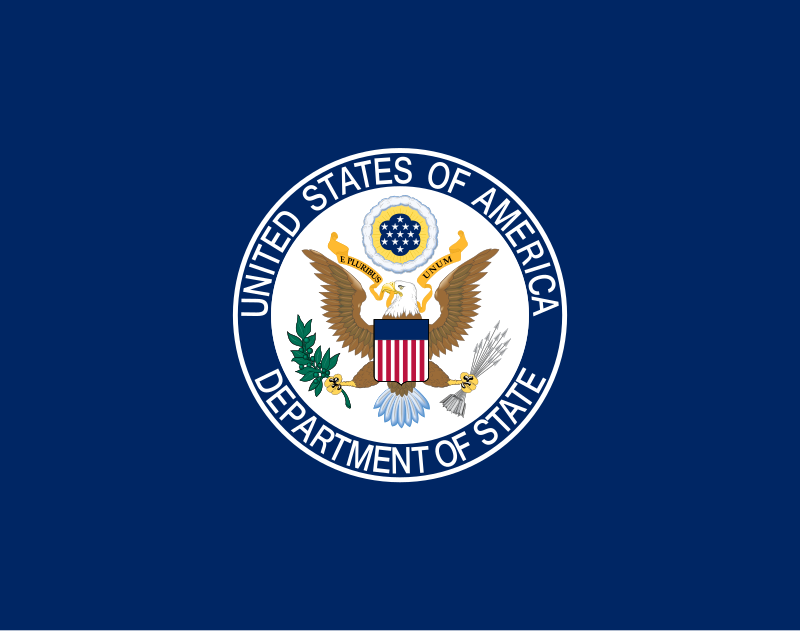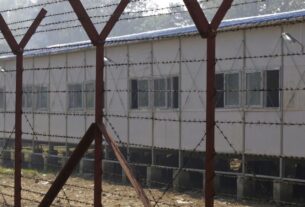December 23, 2024
The United States has expressed serious concerns regarding the sentencing of 25 civilians by a Pakistani military tribunal, following their involvement in protests on May 9, 2023. This development highlights ongoing issues surrounding the use of military courts for civilian cases and raises questions about Pakistan’s adherence to fundamental rights and fair judicial procedures.
Background: The May 9, 2023 Protests
The protests, which erupted in Pakistan in May 2023, were a direct response to the arrest of Imran Khan, the former Prime Minister and leader of the opposition party, Pakistan Tehreek-e-Insaf (PTI). Khan’s arrest sparked widespread unrest, leading to violent demonstrations and clashes with law enforcement. Protesters, many of whom were civilians, stormed military and government buildings in several cities, marking one of the largest shows of public dissent in Pakistan in recent years.
Military Courts and Their Role in Civilian Cases
The individuals sentenced were tried by military tribunals, which are often criticized for lacking the transparency and independence of civilian courts. Military courts in Pakistan are typically authorized to deal with cases related to national security and terrorism. However, in recent years, the scope of these tribunals has expanded, and they have been increasingly used for cases involving civilians, especially in the context of political unrest.
The use of military courts for civilian trials raises concerns over the fairness of proceedings. These tribunals operate under different rules and standards than civilian courts, often limiting the defendants’ access to legal counsel and the ability to challenge evidence. Additionally, these courts are not bound by the same judicial oversight that civilian courts are subject to, further compromising the possibility of a fair trial.
U.S. Response and International Concerns
The United States has been vocal in its opposition to the use of military tribunals for civilians. In a press statement released on December 23, 2024, the U.S. government reiterated its concerns over the lack of judicial independence, transparency, and due process in these military trials. The U.S. emphasized that the right to a fair trial is a fundamental human right, enshrined in Pakistan’s constitution and in international human rights law.
Furthermore, the U.S. urged Pakistani authorities to respect the constitutional guarantees of due process, which include the right to a public trial, an impartial judiciary, and the presumption of innocence. The involvement of military tribunals in civilian cases is seen as a step backward in Pakistan’s democratic development, particularly in the context of its commitment to upholding human rights.
The Legal and Constitutional Implications
Under Pakistan’s Constitution, civilians are entitled to be tried by civilian courts, except in cases involving certain military offenses. The use of military tribunals for civilian cases contradicts the constitutional principles that provide for the separation of military and civilian judicial processes. This practice has drawn criticism from human rights organizations and legal experts who argue that it undermines the rule of law.
Pakistan’s Supreme Court has also expressed concerns in the past about the fairness of military tribunals, urging the government to restrict their use to matters of national security and to ensure that civilian trials are conducted in accordance with constitutional protections.
Conclusion: The Path Forward
The sentencing of 25 civilians by a military tribunal underscores the ongoing tension between Pakistan’s democratic institutions and the military’s influence over the judicial system. The use of military courts for civilian trials continues to be a point of contention, both domestically and internationally.
As the situation unfolds, the U.S. and other international actors will likely continue to call on Pakistan to uphold the principles of justice and due process. Ensuring the independence and transparency of the judiciary is critical not only for Pakistan’s legal system but for the protection of fundamental human rights within the country. The future of civilian trials in Pakistan hinges on a balanced approach that respects both national security concerns and the rights of individuals under the law.
References:
- “Pakistan: Military Tribunals and Civilian Rights.” Human Rights Watch, 2023.
- “Pakistan’s Use of Military Courts for Civilians: A Constitutional Debate.” The Diplomat, 2024.
- “U.S. Statement on Pakistan’s Sentencing of Civilians in Military Tribunals.” U.S. Department of State, December 23, 2024.
Image by US DOS {public domain}: https://en.wikipedia.org/wiki/United_States_Department_of_State#/media/File:Flag_of_the_United_States_Department_of_State.svg



